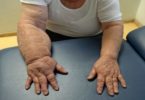What's in this article?
Sexual conditions overview
Sexual conditions, such as sexually transmitted infections (STIs), need medical evaluation and treatment. Some sexual problems like impotence or female sexual dysfunction can also be treated.
In the UK, there has been a substantial increase in most STIs over the past decade. The treatment can help resolve these sexual conditions and practicing safe sex can merely prevent STIs.
Sexual Health
Although sex is not vital for good health but definitely good for you. It can boost circulation, soothe chronic pain, help depression and reaffirm the joys of living. Sexual problems often signal deeper ills: Low libido, genital infection, erectile dysfunction or sexual pain may hide a serious health problem such as diabetes or heart trouble.
Guide to Sexually Transmitted Diseases
Sexually transmitted diseases, commonly called STDs are diseases that spread by having sex with someone who has an STD. You can also get a sexually transmitted disease from sexual activity that involves the mouth, vagina, anus or penis.
According to the American Social Health Organization one out of four teens in the United States becomes infected with an STD each year. At the age of 25 half of all sexually active young adults will get an STD.
Sexually transmitted diseases, commonly called STDs are diseases that are spread by having sex with someone who has an STD. You can Aquired a sexually transmitted disease from sexual activity that involves the anus, mouth, vagina, or penis.
Symptoms for Sexual conditions
- Pain during sex: For women, physical pain during intercourse can be a real problem. Here are reasons why this occurs.
- Premature ejaculation: When a man ejaculates or comes sooner than he’d like while having sex, this is called premature ejaculation.
- Impotence symptoms: Here’s a look at the symptoms of impotence or erectile dysfunction
- Herpes symptoms: Find out about genital herpes symptoms, and how to manage herpes simplex virus symptoms.
- Genital itching: Genital itching can be a symptom of a number of conditions.
Sometimes, there are no symptoms of STDs. When symptoms are present they may include one or more of the following:
- Sores, bumps or warts near the mouth, anus, penis, or vagina.
- Swelling or redness near on the penis or vagina.
- Skin rash.
- Painful urination.
- Weight loss, night sweats, loose stools
- Aches, pains, fever, and chills.
- Yellowing of the skin (jaundice).
- Discharge from the penis or vagina and the vaginal discharge may have an odor.
- Bleeding on the vagina other than during a monthly period.
- Painful sex. A very Severe itching near the vagina or penis.
How Can We Protect Ourself From STDs?

Here are some basic steps that you can protect yourself from STDs:
- Consider that not having sex or sexual relations (abstinence) is the only sure way to prevent STDs.
- Use a latex condom every time you have sex. (When using lubricant, make sure it is water-based.)
- Limit your number of sexual partners. The more partners you have the more likely you are to catch an STD.
- Practice monogamy. This means having sex with only one person. That person also have sex with only you to reduce your risk.
- Choose your sex partners with care. Do not have sex with someone whom you suspect may have an STD. And keep that in mind that you can’t always tell by looking if your partner has an STD.
- Get checked for STDs. Don’t risk giving the infection to someone else.
- Don’t use alcohol or drugs before you have sex. You may less likely to use a condom if you are drunk or high.
- Know the signs and symptoms of STDs. Look for them in yourself and your sex partners.
- Learn about STDs. The more you know, the better you can protect yourself.





